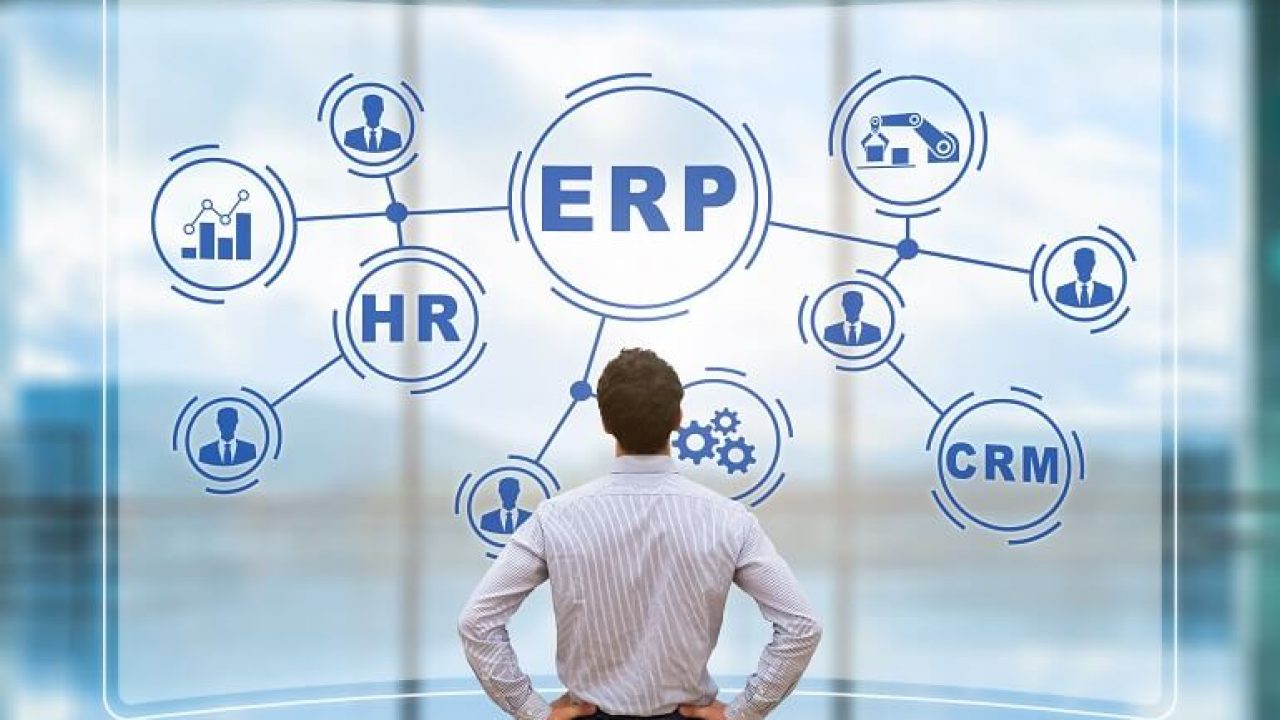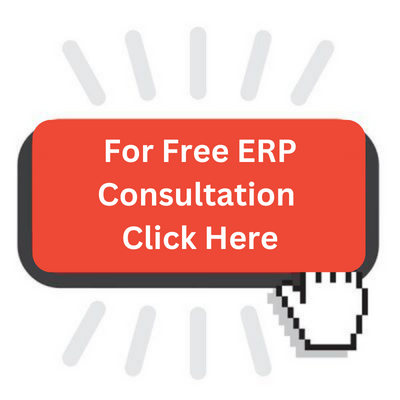In this article, Ilia ERP Corporation, as the official and exclusive representative of Focus ERP Company, tries to provide a step-by-step ERP consultation guide based on a set of key indicators, standards, demo sessions, national and international consultations and experiences gained over the years. It is hoped that this article will be useful for all businesses that are looking for an ERP solution with international scales that operate in Iran.

Define your ERP implementation goals
People who are looking for ERP consulting should carefully check the software they need to make sure that the software in question is able to solve their current problems. It is better to be comfortable with the people who are responsible for deploying the software; If they can provide you with better ways to grow your business using the benefits of ERP, you have the best chance to dramatically improve your business.
Analyze the SWOT of your business
Ask your chosen team the following questions:
- What are the strengths, weaknesses, opportunities and threats for our business?
- What makes our business prosperous?
- Have a detailed analysis of your business.
Every business has its own unique secret to success, which is actually considered a necessary strategy. Define and identify this strategy for your business and make sure that your new ERP system can effectively implement this unique business strategy.

Determine your business priorities
Make a list of your ultimate goals.
- Have you lost control?
- Are there any special requirements for each customer’s inventory?
- Is the manual process of doing things, slowing down your business?
These are the points that should be considered when choosing an ERP consultant, and discussion meetings should be held in this regard; Because an ERP is not supposed to control and manage only basic tasks such as the process of ordering to cash purchases or providing reports. Think about what your business needs to double the growth and expansion. Then prioritize the relevant assessments and challenges.
Review the legal dos and don’ts of your business
You have certain legal responsibilities to your customers, as such the government imposes rules on you, from city sales tax to government financial management. You must comply with these regulations and likewise your ERP must provide you with the assurance of meeting these requirements.
Why ERP?
By discovering the “importance of change“, an important, comprehensive and fundamental vision of your progress will be placed; With this perspective, you can in turn evaluate your current and future business situations and identify potential differences between the two.
In the discovery stage, the goal should be to identify and define goals that are considered opportunities for the development of your business. For example, your goal could be becoming more profitable and more competitive with other companies.

Your ERP must be compatible with today’s technologies
If your organization’s systems do not have the ability to adapt immediately according to the time, the organization will be affected in bad way; In today’s business world, this capability is no longer just an advantage, but has become a critical business need that only a comprehensive ERP system can provide.
Today’s business transaction process requires a seamless integration of instant information through which information from customers, vendors, distributors, material suppliers and related business entities are linked together.
Pay attention to the UI/UX
The use of a simple and effective user interface design is the secret key of having grateful ERP users. A good and flexible user interface in meeting the needs of visitors will not only increase the usability of ERP, but will also lead to a positive user experience and encourage the use of the software.
Select a representative from each department for ERP team
Each part of the organization must have a representative in the selected team. For example, the production department of your organization has variable parts that require different perspectives; So the software selection team should reflect this difference of views.
Choose an expert project manager
Designate a project manager to liaise between the selection team and senior members, as a successful ERP implementation requires the full support of executives. Select 6 to 8 member select committee and send it to all parts of the organization to ensure that all feedback is gathered and that all the needs of the different parts are actually considered.
Hire an experienced independent ERP consultant
Choose an experienced person or company as an ERP consultant in ERP selection and have various technical meetings with them before demo sessions and review of ERP types.

Ilia ERP Corporation has a brilliant history in implementing and consulting on ERP software in order to provide the best possible services to customers, Ilia provides the following services as well:
Consulting and ERP Implementation
Free consultation and troubleshooting for organizations
Identifying process problems and helping to solve them
Providing free services regarding systemization and team management
Identifying points of improvement in organizations and helping to save or increase income in susceptible areas
Also, you can use up to 10 hours of our free services with the approach of using software systems to solve daily organizational problems
Check the cost and benefits of each software
First, determine which of the software categories are able to meet the needs of your organization and at the same time are suitable for your business. When it comes to software, make sure you compare prices based on specific, predetermined criteria.
In addition, even consider the cost of not doing the comparison, because not buying software can directly affect costs through hiring new staff, and can indirectly result in a lack of profitability.
Create a list of reputable ERP companies
- Do you trust your ERP company?
- Are you able to provide the original license and the original vendor services?
- Have you met the leader of your vendor’s advisory team in person?
“This is perhaps more important than scrutinizing the features of the software!”
Since a powerful integrated ERP software package will be worthless if poorly deployed. Sometimes the products of famous companies are implemented by unauthorized and unlicensed teams, which is very dangerous to move in this direction, and usually in this way you do not have access to the main vendor. Also the profit-seeking implementation team tries very hard to exaggerate their service supports!
Create a strategy map including your organization’s services, products, and procedures
The overall map, support and services of the organization and the strategic direction of the ERP software manufacturer should all be considered as factors that align with your business direction.

Check the culture and discipline of the desired company
“Company Culture” is usually considered as an implicit concept derived from company policy or in the sense of goal setting. The truth is that at the operational level, the why and how of a particular business decision is considered as important as any other management consideration. Since companies are often dominated by their leaders, and as a result, the personal opinion of the founders, owners and senior managers is always considered preferable.
Prepare a questionnaire about the ERP deployment process from the target company
You want an ERP implementation that is simple and easy to implement; Without getting involved in the showy aspects of it. You just want an ERP! Not a salesperson trying to mislead you with their hype. An unnecessary deployment can put your budget at risk and end up costing you a lot. Foresight can allow you to successfully plan your finances in the future.
Consider forward-thinking companies
In order to prosper and progress, a business must grow through processes that follow the principle of “quarterly capital growth”! The ability to quickly and seamlessly measure a process should be considered as a fundamental point when choosing ERP software. For this purpose, you should choose an ERP vendor who has his finger on the pulse of the industry (has sufficient mastery in this field); A vendor that provides the support and updates you need to grow your business.
Outline the current processes of the organization
Ensure that current processes are accurately mapped before looking for new systems; Involve users in mapping these processes and let them know that a new system is being prepared for them. Once this mapping is done, create a requirements list that includes the new and definitive features.
In order to encourage users to buy, in addition to the integration of new features, we must also inform users about the existence of these features. Before choosing an ERP system, make sure you have a good understanding of your business needs and how it works. Considering such cases becomes especially important when merging several corporate and business units.
Apply these guidelines from the outset when evaluating new systems. Before moving on to new systems, run a “wipe data“. Transferring bad and ineffective information to a new ERP is the worst thing you can do because it increases the likelihood of problems.
The more preparation you have before talking to the ERP manufacturing company, the more profit you will make in the ERP purchase deal. Expect 50-70% of your project time to be spent on these activities. During this process, you need the presence of worthy people; So be prepared for the impact this choice will have on your daily operations.
Move on the edge of technology
Analysts have predicted the value of the digital market to reach 2.3 trillion dollars by 2023. Evaluate your ERP software vendor. Does the company offer integration services related to the Internet of Things, mobility (changeability), cloud computing, artificial intelligence, and cognitive computing? In the new era of postmodern ERP, the ability to add new features is a necessity. The ERP package should support your business for many years. Make sure that the software is designed with this goal in mind.
Have a Plan B
Failure to properly plan can put the company in trouble in the blink of an eye; Therefore, when you choose an ERP system, the failure and compensation plan will be the most important part of the “revival” program that can save the company from the abyss. Without considering either of these two, all your good thoughts will remain only as a map and your hard work will be lost in the noise of the digital world.
Monitor your business competitors
Your competitors may provide the impetus for your ERP selection project. For example, they can track customer affairs and analyze their buying habits; This is where the competing company experiences a significant advantage over your business. Have they used a new ERP system? If “yes”, it’s your turn to implement a new system and reduce their competitive advantage.
List your existing problems
Consider the overall problem, then divide it into small parts so that it can be solved for the work department in question. For this purpose, try to use specific examples such as the one mentioned at the beginning of the project in relation to the chief executive officer. If you’re talking about reporting problems, discuss specific reports. If you are talking about inventory issues, explain the processes affected. The goal here is to make people think about a problem at the same time.
Document and plan for your target ERP lifecycle
Optimistically, your ERP system should last for years. In terms of lifecycle and maintenance, your ERP vendor should include programs to keep up with the latest developments and bug fixes in the software. Ask him how this program works and how much your ERP life cycle costs; Keep in mind that hardware and networks also have a specific life cycle; Some parts may wear out and others may become technologically obsolete, both of which will increase the cost of your ERP budget.

Explore ERP market developments
Sometimes, you may find a feature or function in the corners of work that will eventually become a useful and effective element in the decision process for ERP selection in the coming years. If you make a note of the potentially useful features you come across, you’ll have less trouble when setting up a chosen project.
Choose the right ERP according to your organization’s goals
In the ERP evaluation process, a company must decide on a deployment option and licensing model that aligns with its business goals. Note that deployment and licensing are two separate categories and are not always presented in an absolute combination (for example, a cloud solution can always be priced as a monthly subscription).
A company may face the following:
A company may choose an ERP vendor and solution that has the fewest features but the most flexible (deployment) that aligns with the company’s needs.
Ultimately, a company must decide what options align with its current cash flow position and deployment mindset. In the past, it was always the vendor that offered the most detailed features and won the business game.
Manage ERP integration and customization
When a company chooses a large enterprise-level ERP, it is natural for the business in question to first ignore the third-party solutions and legacy applications that are currently in use. In the deployment of any ERP, the challenge of integration with multiple third-party solutions inevitably arises.
To ensure a seamless and complete process, the company should focus on choosing a vendor whose software allows integration into the entire current system used by the company.
ERP means integrated software
Probably, you will have to refer to other applications to meet the possible future needs of your business. Does the ERP system show the ability to integrate and integrate flawlessly with other applications? How many apps are there in their app ecosystem? How customizable is this system based on your unique business needs?
For example: if you need automatic payment operations for tomorrow, does your ERP have such a capability? Does the ERP system have a partner that does this, or can you easily integrate such a program into your ERP environment?
Look for flexibility
When choosing an ERP system, having a solution that fits your business needs is essential. Old ERP systems are resistant to change, but with today’s technology, we can have an ERP that is both flexible and robust. Don’t forget to ask questions about how difficult it is to make changes to the system and the need for a consulting company or incurring additional costs for deployment. Additionally, consider the timeline associated with making ERP changes to your business process.
If you have a plan for product growth and innovation, it’s critical to have a flexible ERP solution that enables your team members to make rapid changes to supply chain and manufacturing processes, allowing companies to scale without incurring huge costs. IT and long timelines remain top priority.
The final solution is customization
Customization may be necessary, but complex customizations usually mean high costs (both in time and in the future). In addition, instability and a lot of time spent on implementation will be other problems.
Express your concerns and demands clearly in the demo meeting.
During the ERP preview, if you have any concerns, make sure to ask the vendors your questions; It’s understandable that many people on the selection team would be exhausted after seeing the third demo. It’s important to have a debriefing session after each demo to focus your thoughts and gather feedback. You should also reach a consensus with your group before making a decision.
Bring your advisors to the ERP demo session
Think about why you are looking for an ERP. If your reason is the ability to quickly accept orders and ship them in the shortest possible time, then stakeholders, senior managers and consultants should be present at the ERP demo session. If your customers are demanding improvements in production quality systems, then your target audience will also change subsequently.
Submit your request for an ERP demo in advance
If you take control of the demos, you’ll have an opportunity to make sure all your questions are answered. But some ERP vendors may have flashy demos that only show the strengths of their system.
You should bring your list of important criteria to make sure that your important points are part of the demo; Additionally, there may be tips in the demo that are only relevant to a part of your chosen team’s work.
Including pre-made text allows sellers to, for example, skip financials wherever they want! So you pre-order.
Don’t forget the leaderboard for the demos.
Ask everyone who saw the demo live or recorded to rate the demos, then compare those ratings to the attendance list to make sure everyone participated in the rating. Enter each of the points given in a “spreadsheet” and then add them all together.
At this stage and according to the obtained points, you can remove some ERPs from the selection cycle.

Ilia ERP Corporation has a brilliant history in implementing and consulting on ERP software in order to provide the best possible services to customers, Ilia provides the following services as well:
Consulting and ERP Implementation
Free consultation and troubleshooting for organizations
Identifying process problems and helping to solve them
Providing free services regarding systemization and team management
Identifying points of improvement in organizations and helping to save or increase income in susceptible areas
Also, you can use up to 10 hours of our free services with the approach of using software systems to solve daily organizational problems




